Thursday 29th September, 2022
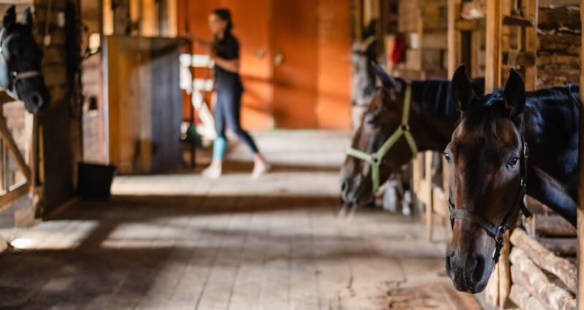
Above all, being a horse owner can be a bundle of fun. But alongside all this fun comes a lot of responsibility, and owners must know there is a lot that goes into taking good care of a horse full-time. It goes without saying that you will want to do all you can to ensure your horse stays fighting fit all year round.
Horses can catch certain diseases and infections extremely easily, so therefore you must be on guard as a responsible equine owner. For example, common horse illnesses you must look out for include things like equine encephalitis (‘sleeping sickness’), colic, tetanus, and equine herpes virus (EHV). In addition, keep your eyes pealed for worming-related problems such as colic and diarrhoea . Looking after your horse’s health should be top of your priority list.
One medical condition that is particularly common amongst horses is equine influenza (or ‘flu’). So, Vale Stables has shared some tips on how to tell if your horse has equine influenza and the steps to support and take care of them.
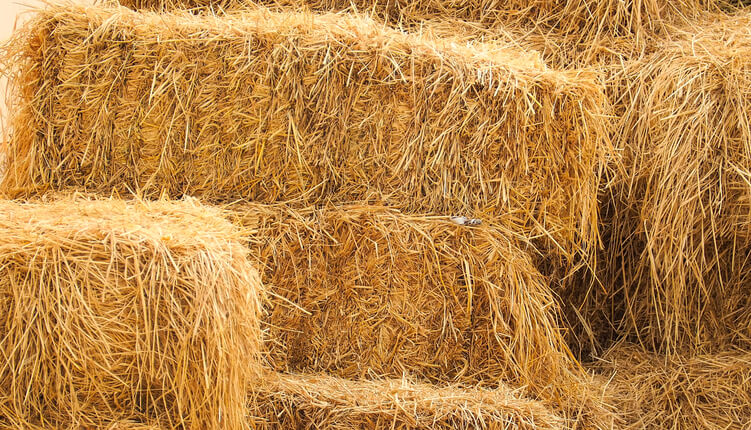
First things first, let’s get into what equine influenza actually is. This virus affects the upper and lower respiratory tracts of horses. Donkeys and mules can also develop equine influenza.
You’re facing an extremely infectious virus that transmits rapidly between groups of horses. As a result, horses will start developing symptoms just a few days after becoming infected. Thus, flu symptoms can start displaying themselves hours after the virus enters a horse’s system.
Now you understand more about the virus, you will need to learn more about how it gets transmitted. Equine influenza is an airborne virus and thereby mainly spreads through horses coughing and it is highly contagious. Germs can spread to horses up to 200 feet away!
It can also be transmitted via horses coming into contact with infected clothing, equipment, brushes, and so on. Conscientious horse owners must be aware that it takes almost nothing for it to start spreading quickly amongst horses. Owners must stay on guard at all times to avoid all their horses transmitting the virus to one another in next to no time.
Dealing with horses with horse flu can be rather demanding and will take up a lot of your time and efforts, and as a result prevention of its transmission is key.
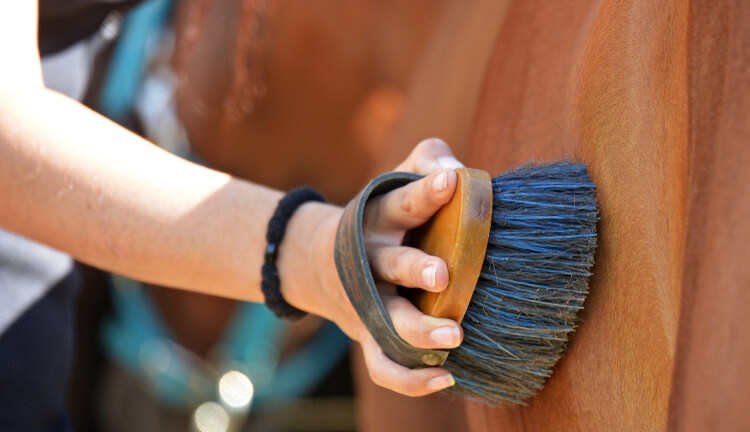
Key to guiding a horse through illnesses and effective treatment is spotting it early on. Early detection and intervention are everything to ensuring your horse stays in top shape healthwise. And this begs the question, how can you spot telltale signs of this virus in a horse?
Here are some well-known symptoms indicating your horse has equine influenza that you should look out for:
● Persistent dry cough
● Your horse becoming sleepy and lethargic
● Loss of appetite
● High body temperatures above 38.5oC
● Swollen glands around the jaw area
● Watery nasal discharge
● Weakening of the horse’s body and limbs
When you spot these symptoms emerging in your precious horse(s), it is vital to act fast and shrewdly. Phone your equine veterinarian to do more investigations and hear their professional opinion.
Healthy horses can turn into sick horses in no time with this virus. Horse owners’ duty is to do all they can to protect their horses from getting ill. And every horse owner wants to see happy energetic horses galloping around their fields and eating plenty in the stables!
Influenza can lead to horses developing other medical conditions. Secondary infections horses can develop from it include:
● Bacterial pneumonia
● Bronchitis
● Swelling of lower limbs
What are the steps you can take as a caring horse owner to prevent equine influenza in the first place? There are various things owners can do to avoid their horses catching this nasty virus.
Monitoring your horse’s health closely on a daily and weekly basis and keeping on top of the basics will help prevent influenza. For instance, a clear symptom of horse flu is a high temperature, and routinely checking their temperature will help to pick up if it has gone too high.
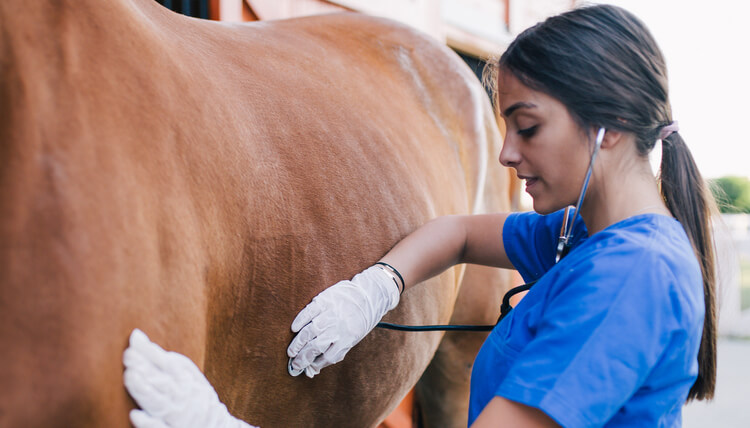
Adequate hygiene management, such as cleaning your horse’s hoofs frequently, should help to fend off equine influenza in the future. Viruses spread between dirty or unhygienic horses much quicker in comparison to clean ones looked after by hygiene-conscious owners.
Our equine friends can also contract viruses such as equine influenza through their coats. Some breeds of horses have especially long coats which need a good deal of TLC. And with this is mind, taking the time to groom and comb your horses with clean sponges and brushes can go a long way in preventing influenza.
Do you have many horses living in the same stable? You should install partitions to provide separate stalls for each individual horse. Indeed, horses are communicative animals who enjoy socialising. Nevertheless, isolation is important when a horse contracts equine influenza, otherwise, it spreads like wildfire. Putting partitions to separate horses in your stables, along with good ventilation, helps to prevent the spread of influenza.
Undergoing a proper worming programme helps to prevent things like horse flu. In reality, it’s up to you as a horse owner to ensure your horse sustains excellent gut health and avoids equine influenza. Those who spend their days actively grazing will easily pick up parasites and infections from their environment, and they should be dewormed at least once or twice as a minimum.
Vaccination does not ultimately give you a 100% guarantee that your horse will be immune from getting equine influenza. Yet horses vaccinated against flu have a reduced chance of catching the virus. FEI’s (International Federation for Equestrian Sports) code of conduct doesn’t allow horses unvaccinated against equine influenza to compete in its events. The British Horse Society holds the view that horses need to receive regular annual vaccinations to protect against equine influenza. Vaccination schedules for equine influenza throughout their lifetime should go as follows:
● First vaccination at 5-6 months old
● Second vaccination 21-60 days after the first vaccination
● Third vaccination 120-180 days after the second vaccination
● After turning 1 year old, horses should receive a booster vaccination once a year against equine flu at a minimum
● Vaccinating your horse every 6 months will increase their antibodies and provide stronger resistance against equine influenza.
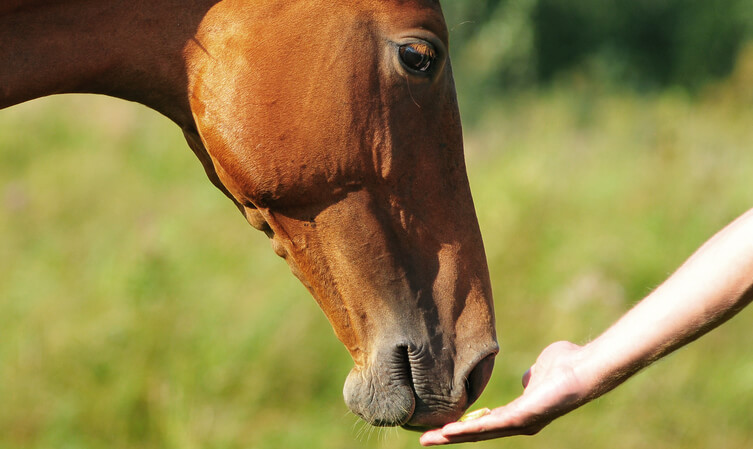
Firstly, much like human flu viruses, there are no direct medical cures available for equine influenza. On the other hand, you can take the following to help support your horse on their path to recovery from flu:
● Allow your horses to get several weeks of rest to help them recover from damage to their upper respiratory tract
● Give them lots of fresh hay and water
● Make sure the stables are kept clean and well ventilated to improve their respiratory system and reduce coughing
Seeing your horse on the mend and back to their normal playful self is a lovely sight to witness. And
signs your horse may be well on the road to recovery include:
● An easing of their dry cough
● Nasal discharge clearing up
● Increasingly active, energetic, and less lethargic
● Maintaining a regular body temperature and not getting dehydrated frequently
● Stable eating habits and regaining their appetite
However, you should remember that horses often take several weeks to recover from equine flu, it won’t happen overnight. Try being patient and hanging on in there, because give them the right care and support, and they should recover from influenza soon enough.
All in all, hopefully you now have a greater understanding of how to tell if your horse has equine influenza. At Vale Stables, we genuinely get horses. As a result of this, we provide a range of bespoke horse stables built by highly skilled craftsmen perfect for horses of any size. To find out more, get in touch today by phoning us on 01789 766 533 or emailing office@valestables.com.